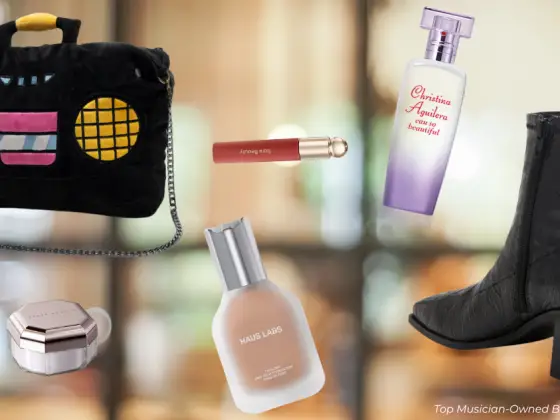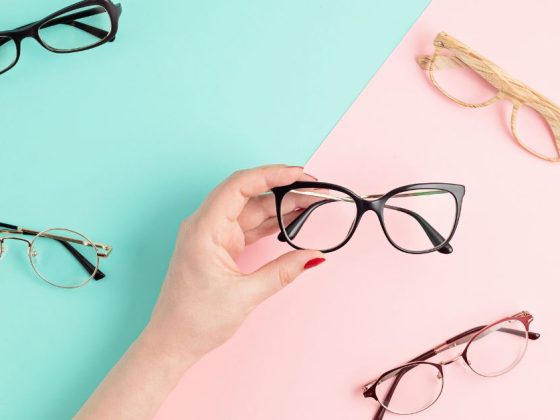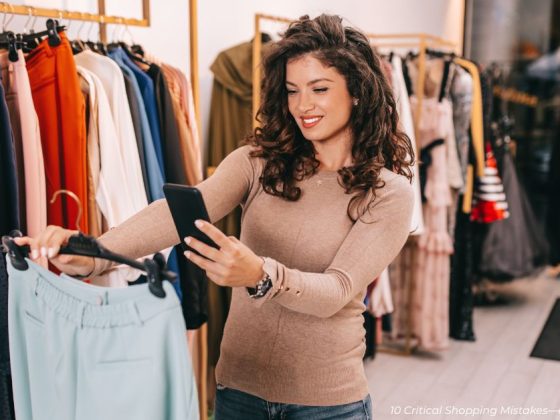 Shopping addiction, also known as compulsive buying disorder (CBD), is a powerful urge that can take over your life, impacting your finances, relationships, and overall well-being. It often stems from a desire to escape stress, anxiety, or depression, providing a temporary high similar to the rush from addictive substances. However, it can lead to guilt, regret, and financial strain. Addressing this issue early is crucial for preventing long-term damage and starting the journey toward recovery.
Shopping addiction, also known as compulsive buying disorder (CBD), is a powerful urge that can take over your life, impacting your finances, relationships, and overall well-being. It often stems from a desire to escape stress, anxiety, or depression, providing a temporary high similar to the rush from addictive substances. However, it can lead to guilt, regret, and financial strain. Addressing this issue early is crucial for preventing long-term damage and starting the journey toward recovery.
8 Clear Signs of Shopaholism
Determining whether you or someone you know is struggling with a shopping addiction can be challenging. Enjoying the occasional shopping spree or overspending does not necessarily indicate a problem. Many people love shopping and may overspend occasionally without being addicted. However, it’s essential to pay attention to specific patterns or behaviors. Shopping addicts often exhibit signs and symptoms that go beyond simply enjoying a sale or treating themselves. Recognizing these signs early is crucial for addressing the issue and finding the proper help.
1) Your Closet is Full of Unopened Items With Tags Still Attached
We’re talking about the things you chose for yourself, which are still sitting in your closet with their tags still on or still in their original packaging. You’ve probably forgotten about some of these purchases, like the boxes of shoes gathering dust at the bottom of your closet or jackets that have never been worn. If you find yourself with items you don’t even remember buying, it might be a sign that your shopping habits are getting out of hand.
2) You Often Buy Things You Don’t Need or Haven’t Planned On
You might be easily tempted by items you don’t need, like a new iPod case. Suppose you’ve identified a particular obsession—shoes, designer handbags, or something else. In that case, this can make you even more susceptible to impulse buying. Even if your splurges seem focused on a specific category, it doesn’t necessarily make them more justifiable. Those frequent, unnecessary purchases can still indicate that your shopping habits might get out of hand.
3) Arguments or Frustrations Trigger a Strong Urge to Shop
Compulsive shopping is often a reaction to feelings of loneliness, feeling out of control, or having low self-esteem. For many people who struggle with this, there’s also a connection to mood disorders, eating disorders, or substance abuse issues. If you reach for comfort food after a tough day, research suggests you might also be more inclined to go shopping. Both behaviors can be ways to cope with emotional challenges, even if they only provide temporary relief.
4) Purchases Always Bring a Surge of Excitement
Shopaholics often feel a thrill or an adrenaline rush when they purchase. Experts explain that this excitement is tied to dopamine, a brain chemical linked to pleasure. When shoppers spot something they want and think about buying it, their brains release dopamine, creating a robust and pleasurable feeling. This rush of excitement can become addictive, leading people to chase that high repeatedly. The temporary boost from buying something can become a compelling urge that’s hard to resist.
5) After a Purchase, You Might Feel Remorse
Guilt after shopping isn’t only tied to making big purchases. Compulsive shoppers often find themselves drawn to deals and bargains, which can lead to accumulating lots of smaller items. As these little purchases add up, so can the feelings of regret. Despite this remorse, shopaholics are skilled at justifying their purchases. They might convince themselves that each item was a smart buy or that the deal was too good to pass up, even if it means overlooking the growing pile of regret.
6) You Try to Conceal Your Shopping Habits
Find yourself stashing shopping bags in your daughter’s closet or constantly checking over your shoulder to ensure no one sees you while shopping online. It might indicate that your spending is affecting your family or job. These behaviors often suggest that you’re trying to keep your shopping habits a secret. When you go out of your way to hide what you’ve bought or where you’re spending money, it can suggest that shopping is becoming more than just a casual habit—impacting other areas of your life. It’s worth considering how this secrecy might affect those around you and whether it’s time to address the underlying issues.
7) You Feel Anxious on Days When You Don’t Shop
It’s normal to feel a bit off if you haven’t had your morning coffee, but if you’re feeling uneasy just because you haven’t made a purchase all day, that’s a different story. This kind of anxiety can be a red flag. Many shopaholics report feeling unsettled if they don’t get their shopping fix, and some even admit to turning to online shopping if they can’t physically get away from their daily responsibilities. If this sounds familiar, it might be time to examine how your shopping habits affect your emotional well-being.
8) You Spend Beyond Your Means
You might find yourself maxing out credit cards and opening new ones to keep up with your shopping habits. As your debt grows, it can become a real struggle to manage, and you might feel tempted to stretch the truth or resort to dishonest means to keep buying. This mounting debt can create a lot of stress and lead you down a troubling path. Suppose you feel overwhelmed by your financial situation and consider lying or stealing to support your spending. In that case, seeking help and addressing these issues before they get worse is crucial.
Emotional Signs of Shopping Addiction
Just like with any addiction, those struggling with a shopping addiction often try to keep it hidden. If someone you care about is dealing with this issue, they might go to great lengths to conceal their behavior from you. If you find yourself hiding credit card statements, shopping bags, or receipts, it could be a sign that you’re struggling with a shopping addiction.
Sometimes, shopaholics might even lie about specific aspects of their behavior. For example, they might admit to shopping but downplay or lie about how much they spent. Recognizing these patterns can be crucial in addressing the problem and seeking the support needed for recovery.
If someone you know is struggling with a shopping addiction, there are several emotional signs you might notice.
- They may frequently spend more than they can afford, often using shopping as a way to cope with feelings of anger or depression.
- This behavior might also be a way to offset guilt from a previous shopping spree, creating a cycle of buying to manage emotions.
- Additionally, excessive shopping can impact their relationships, leading to tension or conflict due to their spending habits.
- The inability to control their shopping behavior can further exacerbate these issues, making it clear that their shopping is more than just a casual habit—it’s become a significant emotional challenge.
Ordinary Shopping vs. Shopping Addiction
Ordinary Shopping
When you buy something, it’s usually because you genuinely need and will use it, which makes those purchases feel purposeful and satisfying. There’s no pressure or urgency driving these decisions; they’re made thoughtfully.
You might still indulge in the occasional splurge even with this balanced approach. These moments of treating yourself won’t cause any financial strain as you manage to keep everything in check while enjoying extra freedom.
Shopping Addiction
Sometimes, purchases are things you don’t need or don’t end up using, which can lead to frustration. This kind of shopping often feels driven by impulse rather than necessity, making it hard to enjoy what you buy.
This compulsive behavior can create financial challenges, as overbuying frequently leads to budget issues. The constant urge to buy more can strain your finances and leave you feeling overwhelmed by your spending habits.
Managing and Overcoming Shopping Addiction
Overcoming any addiction involves finding healthier ways to cope with everyday stress and challenges. While tackling this independently is possible, many people find that counseling or therapy can provide valuable support and guidance.
To manage compulsive spending and regain control, consider taking practical steps. Starting with a personal spending plan can be a helpful first step toward reducing the impact of impulsive purchases and establishing a more balanced approach to your finances.
Additional helpful steps include:
- Finding new ways to enjoy your free time can be a crucial part of breaking the habit of shopping as a way to boost your mood. By discovering alternative activities that bring you joy and satisfaction, you can shift your focus away from using purchases as a quick fix. Exploring hobbies, engaging in social activities, or investing time in personal interests can help you feel better about yourself without relying on shopping. This shift enables you to build healthier habits and enriches your life in more meaningful ways.
- Enlisting support from others can be a great way to manage your shopping habits. Suppose a family member is willing to take over buying essentials like food and household items. In that case, it can give you some breathing room. This temporary shift can help you focus on seeking the assistance you need. Delegating these tasks reduces your temptation to shop impulsively. It allows you to concentrate on addressing the underlying issues driving your behavior. It’s a practical step that can support your journey toward better control and healthier habits.
- One effective way to curb impulsive spending is to limit your access to credit and cash. Consider reducing the number of credit cards or even eliminating them. By doing this, you’ll remove the temptation to make spur-of-the-moment purchases. It’s also wise to carry only a small amount of emergency cash. This way, you’ll be less likely to indulge in unplanned buys, and it helps you stick to a more mindful spending approach.
- Avoiding shopping trips with others who struggle with compulsive spending can be helpful. When you shop with friends or family members who manage their money wisely, they can positively influence and help you stay on track. Spending time with those with a more balanced shopping approach can also make it easier to resist the urge to overspend. Their supportive presence can guide you toward making more thoughtful purchases and keeping your spending in check.
Choosing your shopping companions wisely can make a big difference in managing your spending habits. By surrounding yourself with people who practice mindful spending, you’re more likely to stay on course and make better choices. Their positive influence can be a valuable support in your journey toward healthier financial habits.















